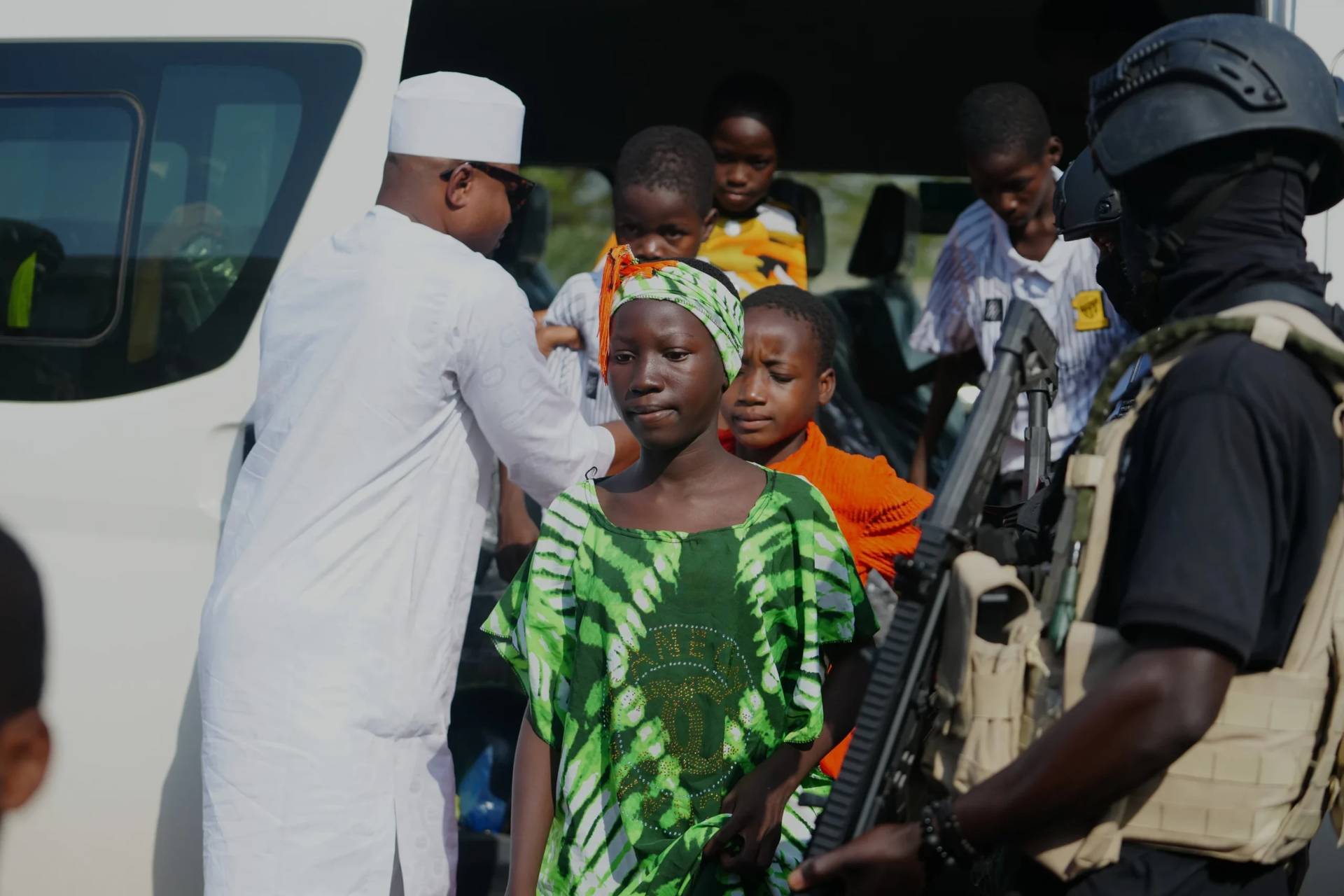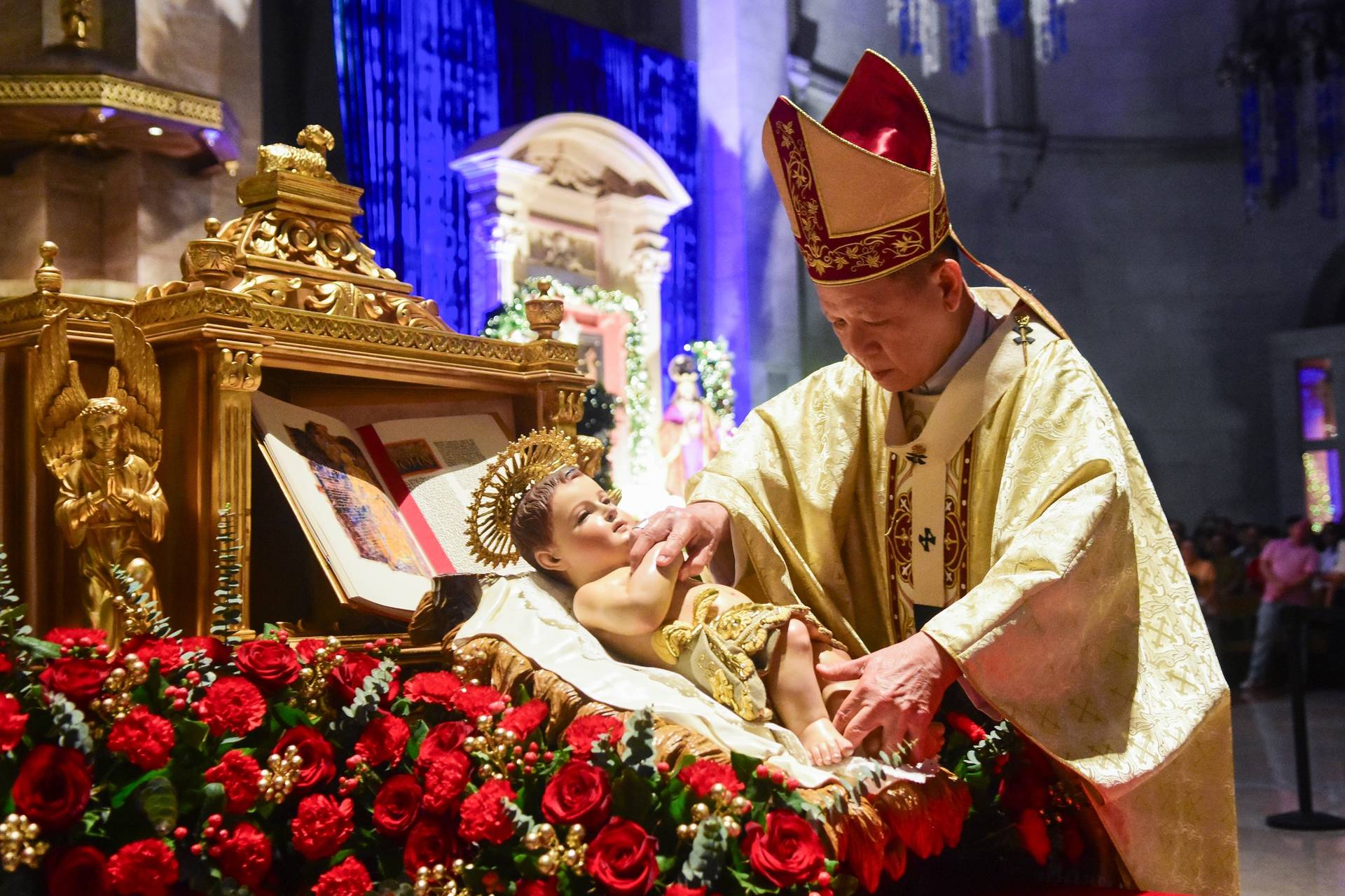YAOUNDÉ, Cameroon – A leading U.S. Catholic aid agency will be working to “correct vaccine myths” as the World Health Organization prepares to begin using a second experimental Ebola vaccine in the Democratic Republic of the Congo.
Catholic Relief Services (CRS), the international development aid agency of the U.S. Catholic bishops, has launched a project in the eastern part of the Congo to stop the spread of Ebola.
“CRS is building on existing relationships with community leaders – including priests, pastors, Imams, youth and teachers – who play a crucial role in this struggle to stop Ebola and save lives,” said Samuel Phelps, the agency’s Central Africa regional information officer.
Since this outbreak was declared in August 2018, more than 200,000 people have received doses of a vaccine made by Merck which will continue to be used in Congo. The U.N. health agency in a statement said the second vaccine, made by Johnson & Johnson, will be used starting in October in areas where Ebola is not actively spreading. So far, more than 3,030 people have been sickened by the Ebola virus in this outbreak, the second-worst in history, and more than 2,100 have died.
Phelps said more than 600 community leaders will be trained by CRS on ways to effectively communicate important health messaging on hand washing and other initiatives aimed at reducing exposure to Ebola and dispelling myths that have been driving transmission.
“CRS’s assistance will contribute to efforts to scale-up containment measures of this deadly and complex epidemic,” he told Crux.
Oliver Hughes, CRS’s Head of Programs for the Eastern Congo said this is complicated by “disinformation campaigns that have raised suspicion among civilians.”
“Part of CRS’s vaccine work around the world is to correct vaccine myths, address vaccine-related hesitancy, and encourage people to get vaccinated,” Hughes told Crux.
Phelps added humanitarian work in the region of the Congo which borders Rwanda is always a challenge “due to the fragile security environment brought on by fighting between militias and security forces.”
“The challenge of reaching isolated communities in a region where local infrastructure has been hollowed out after years of conflict is also a daunting objective to achieve,” he said.
Hughes noted that “Eastern DRC has known conflict for several generations, having been particularly badly impacted by violence since the mid-1990s and early 2000s.” He said there are currently over 130 armed groups in just North Kivu and South Kivu provinces, fighting for a number of different reasons.
In addition to the fragile security environment, Hughes told Crux local beliefs or rumors concerning the origins of the Ebola disease are among the barriers to convincing people to go to hospitals and health centers.
“Involving local leaders and local communities themselves in communication efforts to promote behavior change is one of the most effective ways of reducing exposure to and transmission of Ebola. It is also the most effective way of dispelling myths that have been driving transmission. CRS and Caritas Goma are engaging with religious and opinion leaders to lead this effort,” he told Crux.
He praised the commitment of health workers, risking their lives to save others.
“Dedicated teams of Congolese health workers, supported by international organizations, trace dozens of contacts of Ebola-infected patients every day, often in difficult terrain and occasionally in areas affected by conflict,” he said.
“These contacts – and contacts of contacts – have to be kept under surveillance for three weeks, the time it takes to show symptoms. If contacts are able to be effectively surveilled and receive the vaccination early enough, the spread of the disease can be limited,” Hughes continued.
“But for those who choose not to report symptoms, and become symptomatic at home or in their communities, they risk exposing others to the disease. At which point, the contact-tracing teams have to begin identifying contacts afresh from the new case. Meanwhile, infected patients are isolated and treated in health centers and dedicated treatment centers, exposing health workers to risks of transmission,” he told Crux.
Meanwhile, Bishop Willy Ngumbi Ngengele of Goma, in the east of the Democratic Republic of the Congo, has welcomed the news a second vaccine will be made available in the region.
“We are jubilant at the marvels of medical science in finding a vaccine to cure this deadly disease,” the bishop said.
However, he warned that without trust in healthcare workers, the vaccination campaign will fail.
“A cure brings no hope if fearful people have no trust in the health teams administering the drug. Without such work by the faith communities who have the trust of the local population, hundreds if not thousands more people will die of Ebola, and the disease could spread out of control,” the bishop said.
Ngumbi Ngengele said the Church can play a key role in building that trust, noting that the failure to involve the Church from the outset had resulted in people attacking response teams and even the burning of Ebola treatment centers.
“We can play an essential role as faith leaders, in stemming the spread of this appalling disease,” the bishop said.
This report incorporates material from the Associated Press.
Crux is dedicated to smart, wired and independent reporting on the Vatican and worldwide Catholic Church. That kind of reporting doesn’t come cheap, and we need your support. You can help Crux by giving a small amount monthly, or with a onetime gift. Please remember, Crux is a for-profit organization, so contributions are not tax-deductible.















